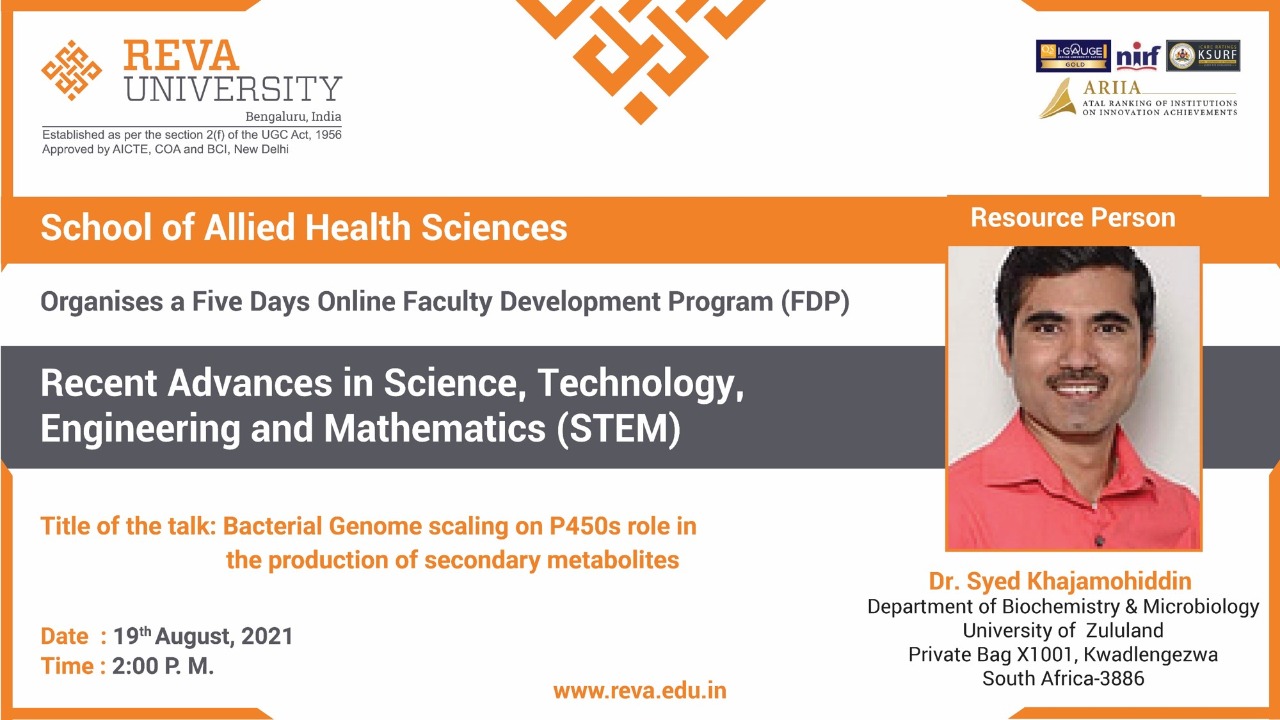Professor Khajamohiddin Syed, from the Department of Biochemistry and Microbiology at the University of Zululand (UNIZULU) has been invited to give a talk in a faculty development program by REVA University in India (online talk).
The five-day Faculty Development Programme, will be conducted from August 16 to 23rd 2021.
According to Prof Syed, “This five-day program is full of distinguished scholars. Our work shows that the international recognition is now growing more than earlier and this is also a great achievement for a UNIZULU researcher.”
Giving snippets of his talk without giving too much away he said that his talk will be about identifying P450 enzymes involved in the production of secondary metabolites in bacterial species using different bioinformatics programs.
The Associate Professor, Prof V Damodara Reddy from REVA university said, “I have gone through your research papers and you are pioneer in the field of Cytochrome P450 related research. You are the right person to educate people in that domain. I thought of having your talk in our Five Day Faculty Development Programme conducted by the Department of Biochemistry, REVA University, Bangalore, India. Hence I contacted you few days back and thank you for accepting our invitation to deliver a talk on “Bacterial Genome Scaling on P450s Role in the Production of Secondary Metabolites”
Prof Lehloenya the Dean of the faculty of Science, Agriculture and Engineering(FSAE) applauded Prof Syed and said, “The FSAE would like to congratulate Prof Syed for being invited to give a talk at REVA University in India. It is not surprising that Prof Syed is an requested speaker at this prestigious programme as he is a leading researcher in P450 enzyme research. In South African, he also established the Cytochrome P450 Researchers community website (http://sacpr.weebly.com/) and enhanced connectivity among South African P450 researchers. The FSAE believes that his talk on “identification of P450 enzymes involved in production of secondary metabolites in bacterial species using different bioinformatics programmes” will be well received by the international community and will provide more information in P450 enzyme research.”

